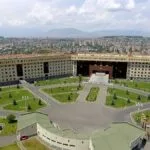- Iran-backed militias in Iraq are prepared to disarm to avoid conflict with the Trump administration.
- This follows private warnings from the US to the Iraqi government.
- The US threatened airstrikes if Iraq did not disband the militias.
- Iran’s Revolutionary Guards have reportedly given their blessing for the disarmament.
- The move marks a potential shift in the region’s balance of power.
Iran-Backed Militias in Iraq Ready to Disarm to Avert Trump Wrath
Baghdad, Iraq – Several powerful Iranian-backed militia groups in Iraq are prepared to disarm for the first time, signaling a potential de-escalation of tensions with the United States under the Trump administration. This move comes after repeated private warnings from US officials to the Iraqi government since President Trump assumed office in January, according to ten senior commanders and Iraqi officials who spoke to Reuters.
US officials reportedly informed Baghdad that unless the Iraqi government acted to disband the militias operating within its borders, the United States could resort to targeting these groups with airstrikes. This direct pressure has seemingly prompted a significant shift in the militias’ stance.
Izzat al-Shahbndar, a prominent Shi’ite Muslim politician with close ties to Iraq’s governing alliance, told Reuters that discussions between Prime Minister Mohammed Shia al-Sudani and several militia leaders have progressed significantly. He indicated that the groups are inclined to comply with the US demands for disarmament. “The factions are not acting stubbornly or insisting on continuing in their current form,” al-Shahbndar stated, adding that the groups are “fully aware” of the potential for US military action against them.
The six militia commanders interviewed by Reuters in Baghdad and a southern province, who requested anonymity due to the sensitive nature of the situation, represent the Kataib Hezbollah, Nujabaa, Kataib Sayyed al-Shuhada, and Ansarullah al-Awfiyaa groups.
A commander from Kataib Hezbollah, considered the most powerful Shi’ite militia, conveyed the group’s apprehension, stating from behind a face mask and sunglasses, “Trump is ready to take the war with us to worse levels, we know that, and we want to avoid such a bad scenario.”
The commanders revealed that their primary ally and supporter, Iran’s elite Revolutionary Guards (IRGC) military force, has given them its approval to make any decisions they deem necessary to avoid being drawn into a potentially devastating conflict with the United States and Israel.
These militias form part of the Islamic Resistance in Iraq, an umbrella organization comprising approximately 10 hardline Shi’ite armed factions. This collective force commands an estimated 50,000 fighters and possesses arsenals that include long-range missiles and anti-aircraft weaponry, according to two security officials monitoring militia activities. The Resistance group, a crucial component of Iran’s network of regional proxy forces, has claimed responsibility for numerous missile and drone attacks on Israel and US forces in Iraq and Syria since the Gaza war began roughly 18 months ago.
Farhad Alaaeldin, Prime Minister Sudani’s foreign affairs advisor, responded to inquiries about the disarmament talks by affirming the prime minister’s commitment to ensuring that all weapons within Iraq are under the control of the state through “constructive dialogue with various national actors.”
The two Iraqi security officials indicated that Prime Minister Sudani is pushing for disarmament from all militias belonging to the Islamic Resistance in Iraq, many of which declare their allegiance to Iran’s IRGC or Quds Force rather than to Baghdad.
Sources suggest that some groups have already begun to evacuate their headquarters and reduce their presence in major cities like Mosul and Anbar since mid-January, fearing potential air attacks. Commanders have also reportedly increased their security measures, frequently changing their communication devices, vehicles, and residences.
The US State Department reiterated its calls for Baghdad to exert control over the militias, emphasizing that “These forces must respond to Iraq’s commander-in-chief and not to Iran.”
An anonymous American official expressed skepticism about the long-term viability of any disarmament, noting previous instances where militias temporarily ceased attacks due to US pressure.
While the IRGC declined to comment, the Iranian and Israeli foreign ministries did not respond to requests for information.
Shahbndar, the Shi’ite politician, mentioned that the Iraqi government has not yet finalized a disarmament agreement with militant leaders, and the mechanism for disarmament is still under discussion. Options under consideration include transforming the groups into political parties and integrating them into the Iraqi armed forces.
Despite the uncertainty surrounding the final outcome, these discussions mark a significant first step, with the militias showing a willingness to concede to long-standing Western pressure for demilitarization.
This potential shift occurs at a critical juncture for Tehran’s regional “Axis of Resistance,” which has been significantly weakened since the onset of the Gaza war.
Ibrahim al-Sumaidaie, a former political advisor to Prime Minister Sudani, told Iraqi state TV that the United States has long urged Iraq to dismantle Shi’ite militias, but this time, Washington might not accept a negative response. “If we do not voluntarily comply, it may be forced upon us from the outside, and by force,” he warned.









